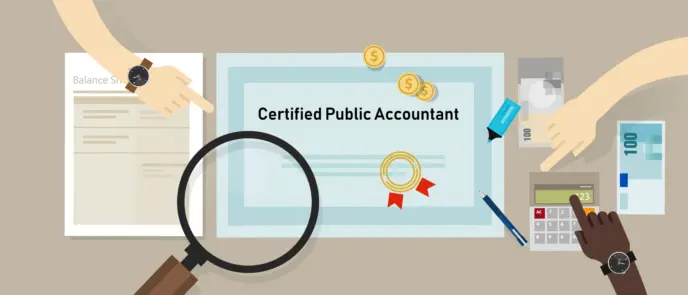In the intricate landscape of modern finance, Certified Public Accountants (CPAs) stand as sentinels of financial integrity and guardians of economic transparency. These professionals, armed with specialized knowledge and rigorous training, play pivotal roles across industries, ensuring compliance with regulations, accurate financial reporting, and strategic financial management. This article delves into the significance of CPAs, their qualifications, roles in businesses and society, evolving challenges, and the future outlook of this esteemed profession.
Understanding the Role of Certified Public Accountants
Certified Public Accountants are professionals who have met specific education, experience, and examination requirements to earn the CPA designation. Beyond their technical expertise in accounting principles and financial reporting standards, CPAs serve as trusted advisors to businesses, governments, nonprofit organizations, and individuals. Their primary responsibilities include:
Financial Reporting and Assurance: CPAs audit financial statements to provide assurance to stakeholders regarding the accuracy and fairness of the reported financial information.
Tax Compliance and Planning: They navigate the complexities of tax laws, helping entities minimize tax liabilities while ensuring compliance with regulations.
Consulting and Advisory Services: CPAs offer strategic advice on financial management, risk assessment, internal controls, and business planning, contributing to organizational growth and stability.
Qualifications and Pathway to Becoming a CPA
Becoming a Certified Public Accountant requires dedication, education, and passing the Uniform CPA Examination. The typical pathway involves:
Educational Requirements: A bachelor’s degree in accounting or a related field is usually the minimum educational requirement. Many CPAs pursue further education, such as a master’s degree, to enhance their knowledge and career prospects.
Experience: Candidates must complete a specified number of hours working under the supervision of a licensed CPA to gain practical experience in accounting.
CPA Examination: Administered by the American Institute of CPAs (AICPA), this rigorous exam assesses candidates’ knowledge and skills in accounting principles, auditing, taxation, and business law.
Upon meeting these requirements and earning the CPA license from their respective state boards of accountancy, CPAs commit to upholding high ethical standards and continuing professional education throughout their careers.
The Crucial Role of CPAs in Businesses and Organizations
In corporate environments, CPAs play multifaceted roles that extend beyond mere number-crunching. They are integral to:
Financial Decision-Making: CPAs provide insights into financial data that guide critical decisions on investments, expansions, and resource allocations.
Regulatory Compliance: They ensure adherence to financial reporting standards and regulatory requirements, mitigating risks of legal penalties and reputational damage.
Internal Controls and Risk Management: CPAs design and implement internal controls to safeguard assets and prevent fraud, enhancing operational efficiency and accountability.
CPAs in Public Practice and Beyond
Beyond corporate settings, CPAs serve diverse roles:
Public Accounting Firms: Many CPAs work in public accounting firms, offering auditing, tax, consulting, and advisory services to a wide range of clients.
Government and Nonprofit Sectors: CPAs in these sectors oversee budgeting, financial reporting, and compliance with fiscal policies, ensuring responsible stewardship of public funds and donor contributions.
Forensic Accounting and Investigations: Some CPAs specialize in forensic accounting, uncovering financial irregularities and providing expert testimony in legal proceedings.
Evolving Challenges and Opportunities
The landscape of accounting and finance is continuously evolving, presenting both challenges and opportunities for CPAs:
Technological Advancements: Automation and artificial intelligence are reshaping traditional accounting tasks, requiring CPAs to adapt by enhancing their analytical and advisory skills.
Regulatory Changes: CPAs must stay abreast of evolving regulations and standards, such as the implementation of new accounting standards (e.g., ASC 606 for revenue recognition).
Globalization: With businesses operating across borders, CPAs navigate complexities related to international taxation, financial reporting standards, and regulatory compliance.
The Future of the CPA Profession
Looking ahead, the role of CPAs is poised to expand and evolve in response to changing economic landscapes and technological advancements:
Advisory and Consultative Roles: CPAs will increasingly focus on providing strategic insights and advisory services, leveraging data analytics and predictive modeling to drive decision-making.
Ethical Leadership: As stewards of financial integrity, CPAs will continue to uphold ethical standards and promote transparency in financial reporting and governance.
Diversity and Inclusion: Efforts to enhance diversity within the profession will ensure a broader range of perspectives and skills, strengthening the profession’s ability to innovate and adapt.
In conclusion, Certified Public Accountants are indispensable to the fabric of modern economies, ensuring financial accountability, facilitating informed decision-making, and upholding ethical standards. As the dynamics of business and finance evolve, so too will the role of CPAs, reaffirming their status as trusted advisors and custodians of financial integrity in a complex and interconnected world.
Keep an eye for more news & updates on LatestDash.co.uk!

